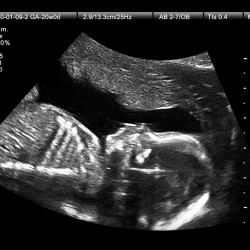Age, Order, and Autism
Study links family environment and autism.
A child’s chances of developing autism may be set at birth, but not necessarily by genetics. According to a study led by UW pediatrics and population health sciences professor Maureen Durkin ’77, MA’79, PhD’82, birth order and parental age both appear to affect development of autism spectrum disorders.
Durkin and her colleagues looked at 253,347 children born in 1994, and they found that 1,251 showed signs of autism spectrum disorders (ASD), a broad group of social and communication impairments. While the overall incidence was low — less than .5 percent — some patterns emerged.
The children of fathers past the age of forty were 60 percent more likely to show symptoms than those of younger fathers, and the children of mothers aged thirty-five or older were 40 percent more likely. At the same time, firstborn children also showed an increased incidence — 30 percent more than second-borns and 70 percent more than those born third or later. “Firstborn offspring of two older parents,” Durkin’s study noted, “were three times more likely to develop autism than were third- or later-born offspring of mothers aged twenty to thirty-four and fathers aged under forty years.”
Durkin admits she doesn’t know why parental age and birth order affect ASD, nor why the effects seem to conflict — second- or third-born children would have older parents than their first-born siblings. “We were really looking at two distinct variables,” she says, “and we discovered that they have independent effects, that they seem to go in opposite directions.”
Durkin hopes that future studies will enable researchers to illuminate the effects of family on ASD. In 2009, she will join with researchers around the United States in the National Children’s Study, a longitudinal study of some 100,000 children born this year. Durkin and other researchers will follow the children’s development from birth to age twenty-one to examine environmental influences on health and development.
Published in the Spring 2009 issue


Comments
C.H. July 24, 2014
The fact that first-borns are more likely to fall on the spectrum is probably due to the tendency of parents to not have more children after they have one with autism.
M mouse April 2, 2022
No, the reason is that the mother’s toxic load dumps on the first borns. There are well established mechanisms for this. I thought everyone knew this. I guess I keep forgetting that the autism-is-a-gift crowd deny all science that doesn’t fit their agenda.
Karol January 21, 2025
“No, the reason is that the mother’s toxic load dumps on the first borns.”
Why is the mother guilty and not the father ?
Personally I’ll stick to science rather than Inquisition-level, 12th century sort of “women are sinnnners and everything must be their fault !” levels of idiocy.